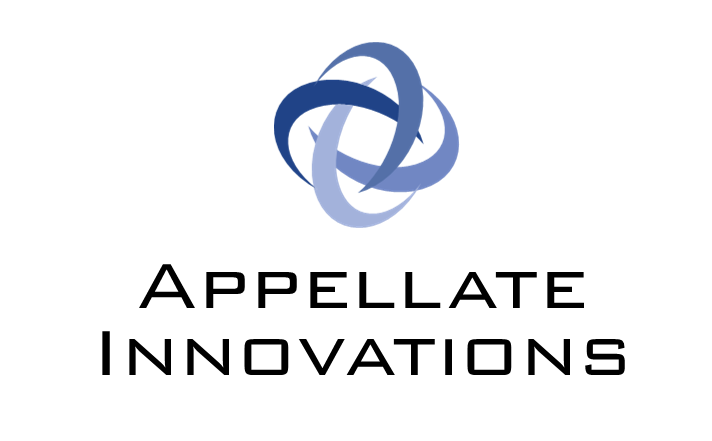20 Dec Frequently Asked Questions About Pre-Argument Conference Program – Offered by Appellate Division, 1st Department

{5:31 minutes to read} The FAQs listed below, pertaining to the Pre-Argument Conference Program have been released by The Appellate Division 1st Dept can be found on the court’s website here.
General Information:
1. What Is the Purpose of the Pre-Argument Conference?
A pre-argument conference is a confidential proceeding conducted for the purpose of reaching a settlement through mediation and/or simplifying the issues to aid in the processing or disposition of an appeal and any related proceeding.
2. Which Appeals Are Selected for the Pre-Argument Conference Program?
The office of the Clerk of the Court determines which civil cases will be selected for a conference based on a review of the documents filed when the appeal is taken. Generally, cases filed pursuant to CPLR Article 78 and child custody matters, as well as those involving jurisdictional questions, will not be selected.
3. Can a Conference Be Requested If One Is Not Scheduled by the Court?
Counsel for any party who believes that a conference may lead to resolution of the issues on appeal or the entire litigation may request a conference by submitting a letter to the Court, addressed to the Clerk of the Special Master’s program, along with a copy of the notice of appeal, informational statement and the order or judgment appealed from. A determination as to whether the request will be granted is within the discretion of the Court.
4. If I Am Not Represented by Counsel, Does This Preclude My Appeal From Being Selected for a Pre-Argument Conference?
Cases in which a party is not represented by counsel and is not an attorney are not scheduled for a conference because of concerns that a self-represented litigant, who is not an attorney, might view the Special Master as an advisor or representative or as imposing a settlement. The Special Master cannot give any party legal advice, nor can he or she require that a settlement be accepted.
5. Does the Scheduling of a Pre-Argument Conference Toll the Time to Perfect the Appeal?
No. The initial pre-argument conference in any matter is scheduled with due consideration given to the appellant’s perfection requirements. In the event that further conferences, which may impact perfection deadlines, are determined to be appropriate, the appellant should seek an enlargement of time within which to perfect (see 12 NYCRR 1250.9[b]).
6. What If the Appeal Has Already Been Perfected?
If the appeal has been perfected after a pre-argument conference has been scheduled, please notify the Clerk of the Special Master’s program. Appellants should consider refraining from perfecting their appeals until after a scheduled pre-argument conference is held since one of the benefits of settling the case is saving the costs of preparing and printing the briefs and record.
7. Can a Conference Be Adjourned?
Court-ordered conferences are mandatory and adjournments are generally not granted unless good cause is shown. A request to adjourn the conference must be made in writing at least three business days prior to the scheduled conference and should be addressed to the Clerk of the Special Master’s program.
8. Do the Parties Have to Appear for the Conference?
The attorneys of record in charge of the appeal must appear and are required to participate in the settlement process. The attorneys must have knowledge of the issues and full authority to act on behalf of their clients. At the request of the Special Master, the named parties to the action and/or such other additional parties in interest, such as an insurer, as may be directed, must attend a scheduled conference to aid in the disposition of the appeal or settlement.
9. If I Am a Respondent, Do I Have to File Anything With the Court Prior to the Pre-Argument Conference?
Yes, within 10 days after an order directing a pre-argument conference has been entered, counsel for respondent must file with the Court a counterstatement together with proof of service. The counter-statement must set forth any challenges to the assertions made by the appellant in the informational statement and must include an explanation of the grounds for granting any relief sought by the respondent.
10. What If Counsel for a Party Fails to Appear Timely for a Conference?
Counsel must submit a letter to the Clerk of the Special Master’s program explaining his or her failure to appear for the conference. Failure to appear or to submit a letter of explanation may result in the imposition of sanctions as the justices of the Court may direct.
11. If the Parties Agree That the Issue or Issues to Be Raised on Appeal Cannot Be Resolved or That the Case Cannot Be Settled, Can the Conference Be Cancelled?
No. Once a conference has been scheduled, the determination as to whether the matter can be settled is made by the Special Master conducting the conference. The parties are not excused from complying with the Court’s order directing that a conference be held on the ground that they believe the matter cannot be settled.
12. Who Conducts the Pre-Argument Conferences?
The pre-argument conferences are conducted by Special Masters appointed by the Court. The Special Masters, with the exception of the Director of the Program, who is an employee of the Court, provide all their services on any matter on a pro bono basis.
Click here for a list of the current Special Masters.
Contact us today if you need assistance.
 Marian Genio, Esq.
Marian Genio, Esq.
APPELLATE INNOVATIONS
3 Barker Avenue, 2nd Floor
White Plains, NY 10601
Phone: (914) 948-2240






No Comments